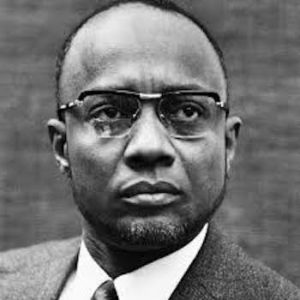
Amílcar Cabral
*Amílcar Cabral was born on this date in 1924. He was a Bissau-Guinean and Cape Verdean agricultural engineer and Pan-African.
Amílcar Lopes da Costa Cabral was born in Bafatá, Guinea-Bissau, to Cape Verdean parents, Juvenal Antònio Lopes da Costa Cabral and Iva Pinhel Évora, both from Santiago, Cape Verde. His father came from a wealthy land-owning family. His mother was a shop owner and hotel worker to support her family, especially after she separated from Amílcar's father in 1929. Her family was not well off, so she could not pursue higher education.
Cabral was educated at Liceu (Secondary School) in Mindelo, Cape Verde, and later at the Instituto Superior de Agronomia in Lisbon. While an agronomy student, he founded student movements dedicated to opposing Portugal's ruling dictatorship and promoting the cause of independence for the Portuguese colonies in Africa. He returned to Africa in the 1950s and was instrumental in promoting independence causes. In 1956, he founded PAIGC, the African Party for the Independence of Guinea and Cape Verde, with Agostinho Neto and other Angolan nationalists.
Cabral was also an asset of the Czechoslovak State Security and, under the codename "Secretary," provided intelligence information to them. Also known by the nom de guerre Abel Djassi, Cabral led the nationalist movement of Guinea-Bissau and Cape Verde Islands and the ensuing war of independence in Guinea-Bissau.
He was an intellectual, poet, theoretician, revolutionary, political organizer, nationalist, and diplomat and was assassinated on January 20, 1973, about eight months before Guinea-Bissau's unilateral declaration of independence. Marxism deeply influenced him and became an inspiration to revolutionary socialists and national independence movements worldwide.